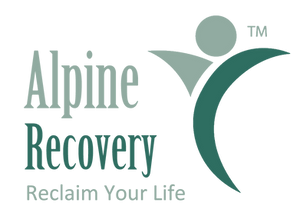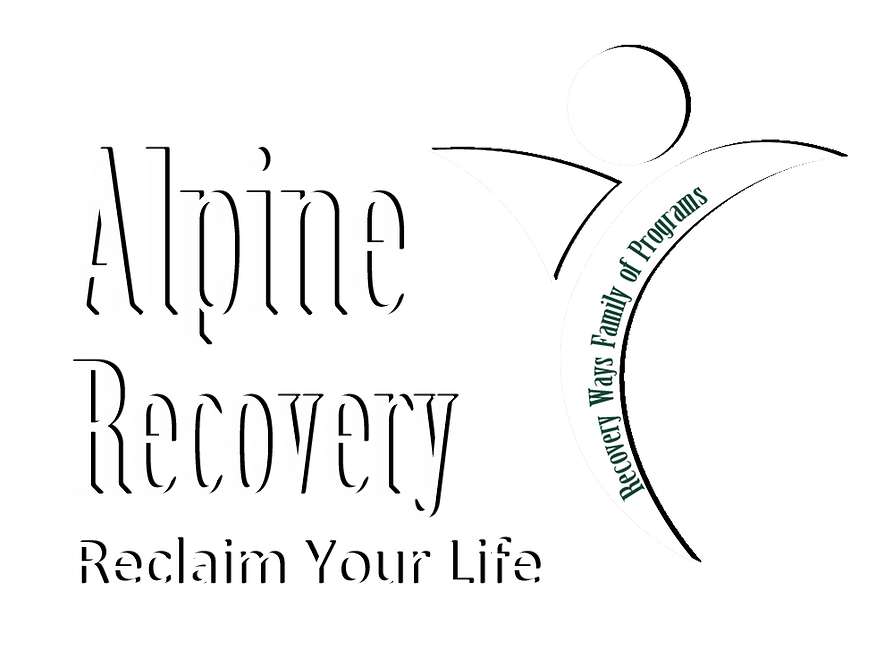Exploring Treatment Options at Alpine Recovery
Alpine Recovery in Everett is a haven for those looking to overcome addiction with a comprehensive approach that caters to the whole person. This institution offers a range of treatment options, each meticulously designed to address the unique needs of individuals grappling with substance abuse. The availability of both inpatient and outpatient programs ensures flexibility and accessibility for clients, regardless of their life circumstances. These programs are supported by a team of dedicated professionals whose primary aim is to guide clients through the recovery process in a safe and nurturing environment.
The inpatient program at Alpine Recovery offers a structured setting that is ideal for individuals who require intensive support. It provides a space where clients can focus exclusively on their recovery, away from the distractions and triggers of everyday life. On the other hand, the outpatient program is perfect for those who need to balance treatment with daily responsibilities such as work or family obligations. This program allows clients to receive the care they need while maintaining their routines.
Personalized Treatment Plans
Alpine Recovery places a strong emphasis on creating personalized treatment plans tailored to the specific needs and goals of each client. Recognizing that no two individuals are the same, the facility adopts a client-centered approach that starts with a thorough assessment of the client’s substance use history, physical health, and psychological well-being. This assessment informs the development of a customized treatment plan that addresses the root causes of addiction while promoting overall wellness.
The facility’s experienced staff, including licensed therapists and counselors, work collaboratively with clients to ensure that the treatment plans remain relevant and effective. Regular evaluations and adjustments are made to the plans as needed, ensuring that clients receive the most appropriate care at every stage of their journey toward recovery. This personalized approach not only enhances the effectiveness of the treatment but also empowers clients to take an active role in their recovery process.
Alpine Recovery recognizes the importance of involving family members in the treatment process, offering family counseling sessions as part of the personalized treatment plans. These sessions help to address any familial issues related to addiction and foster a supportive environment that promotes healing for the entire family unit.
Holistic Approach to Recovery
In addition to traditional therapy and counseling, Alpine Recovery integrates holistic treatments into its recovery programs, aiming to promote physical, emotional, and spiritual wellness. This holistic approach acknowledges that addiction affects all aspects of an individual’s life and seeks to address these areas comprehensively. The incorporation of mindfulness practices, such as meditation and yoga, helps clients develop coping mechanisms for stress and anxiety, which are often underlying factors in addiction.
Alpine Recovery also offers exercise programs and nutrition education, which are integral components of the holistic approach. Physical activity is known to release endorphins, which can enhance mood and reduce cravings, while proper nutrition supports overall health and recovery. By addressing the body, mind, and spirit, this approach not only aids in the immediate recovery process but also sets the foundation for lasting well-being beyond the program.
Applying Evidence-Based Practices
At Alpine Recovery, evidence-based practices form the cornerstone of treatment, ensuring that clients receive the most effective care possible. This includes therapies such as cognitive-behavioral therapy (CBT), which is instrumental in helping clients identify and change negative thought patterns and behaviors that contribute to their addiction. CBT equips clients with practical tools to manage triggers and maintain sobriety long after leaving the program.
Another key component of the evidence-based approach at Alpine Recovery is motivational interviewing. This client-centered counseling style helps individuals explore their ambivalence toward change and strengthens their motivation to pursue a healthier lifestyle. By fostering a collaborative and non-judgmental environment, motivational interviewing encourages clients to set and achieve personal recovery goals.
Medication-assisted treatment (MAT) is also part of the evidence-based offerings at Alpine Recovery, providing support for clients dealing with cravings and withdrawal symptoms. MAT, combined with counseling and behavioral therapies, offers a comprehensive approach to treating substance use disorders.
Creating a Supportive Environment
Alpine Recovery is committed to providing a supportive and welcoming environment for its clients, emphasizing the importance of community and peer support in the recovery process. The facility encourages clients to connect with others who are on similar journeys, fostering a sense of camaraderie and understanding that is vital for sustained recovery. Group therapy sessions provide a safe space for clients to share their experiences, challenges, and triumphs, reinforcing the notion that they are not alone in their struggles.
The sense of community at Alpine Recovery extends beyond the confines of the facility, with clients being encouraged to participate in peer-support groups such as Alcoholics Anonymous or Narcotics Anonymous. These groups offer additional layers of support and accountability, which are crucial for long-term sobriety. By embracing a community-driven approach, Alpine Recovery empowers clients to build meaningful connections that enhance their recovery journey.
Facilities and Amenities at Alpine Recovery
Located in a serene and calming setting, Alpine Recovery’s alcohol rehab Everett offers an ideal atmosphere for individuals beginning their journey toward recovery. The facility is designed to provide a peaceful retreat, away from the chaos of everyday life, allowing clients to focus solely on healing and growth. The tranquil environment is complemented by state-of-the-art amenities that cater to the needs of clients, including comfortable living spaces, recreational areas, and therapy rooms equipped with the latest technology.
Alpine Recovery understands that a conducive environment plays a significant role in the recovery process. Therefore, every aspect of the facility is designed to create a sense of safety and comfort, encouraging clients to fully engage in their treatment programs. The combination of a serene setting and modern amenities ensures that clients have everything they need to focus on their recovery without distractions.
Aftercare Planning and Resources
Alpine Recovery recognizes that recovery is an ongoing journey that extends beyond the initial treatment phase. As such, the facility offers comprehensive aftercare planning to support clients in their transition back to everyday life. This includes the development of a personalized aftercare plan that outlines strategies for maintaining sobriety, including continued therapy sessions, participation in peer-support groups, and access to community resources.
The aftercare support provided by Alpine Recovery also includes case management services, where clients can receive ongoing guidance and support as they navigate the challenges of post-treatment life. The facility’s commitment to aftercare ensures that clients have the tools and resources they need to build a fulfilling and substance-free life.
By offering a robust aftercare program, Alpine Recovery helps clients remain accountable and motivated, significantly reducing the risk of relapse. This commitment to continuous support reflects the facility’s dedication to helping clients achieve sustained recovery and personal growth.
Contacting Alpine Recovery
For individuals seeking help or more information about the programs offered at Alpine Recovery, reaching out is the first step toward a healthier future. The facility’s compassionate team of professionals is available to answer questions and provide guidance on the treatment options available. Whether it’s verifying insurance, scheduling an assessment, or simply seeking advice, Alpine Recovery is committed to supporting those in need.
Prospective clients or their loved ones can contact Alpine Recovery via phone or email to initiate the admission process or to learn more about the facility’s services. By taking the step to reach out, individuals can begin their journey to recovery with the assurance of professional support and care from Alpine Recovery.
What is the most popular program for recovering alcoholics?
Many clients at Alpine Recovery favor the inpatient treatment program, given its structured and immersive approach to recovery. This popularity largely stems from the intensive support offered, which is particularly beneficial for those dealing with severe addictions. Inpatient programs provide a distraction-free environment where individuals can solely focus on healing. However, some clients also choose outpatient programs, which cater to those balancing recovery with ongoing responsibilities like work or family. Ultimately, the most popular choice depends on an individual’s personal circumstances and needs. Is there a particular aspect of Alpine Recovery’s inpatient or outpatient programs you’re curious about?
What are the struggles that an alcoholic has in rehab?
One of the major challenges individuals face at Alpine Recovery is confronting the underlying issues that contribute to addiction, which can be emotionally taxing. In rehab, clients also grapple with adjusting to new routines and coping mechanisms, replacing old habits with healthier alternatives. Another challenge is withdrawal symptoms, which can be physically and mentally exhausting. Peer support and professional guidance at Alpine Recovery play crucial roles in helping clients navigate these struggles. How have these struggles affected someone you know, or how do you think they might impact you?
How much does it cost to get sober?
The cost of treatment at a facility like Alpine Recovery varies based on several factors, including the type of program (inpatient vs. outpatient) and the duration of treatment. Generally, inpatient programs tend to be more expensive due to the comprehensive care and accommodation provided. However, Alpine Recovery works with clients to explore financial options, including insurance coverage, to make treatment as accessible as possible. It’s important to consider not just the monetary cost, but the long-term value of recovery, which can be life-changing. Would you like to discuss more about the financial options available at Alpine Recovery?
Is sober living the same as rehab?
Sober living and rehab are distinct phases in the recovery journey. While rehab, like the programs offered at Alpine Recovery, focuses on intensive treatment and therapy to address addiction, sober living serves as a transitional phase where individuals adjust to life after rehab. Sober living environments provide structured living with support from peers, allowing individuals to apply learned coping strategies in real-world settings. They complement rehab by offering ongoing support in maintaining sobriety. How do you envision the transition from rehab to sober living impacting someone’s recovery journey?
What are the benefits of a holistic approach to recovery?
Alpine Recovery’s holistic approach is designed to treat the whole person, not just the addiction. By incorporating mindfulness practices, exercise, and nutrition into the treatment plan, clients gain tools for managing stress and promoting overall wellness. Holistic treatment acknowledges the interconnectedness of physical, mental, and spiritual health, setting the stage for lasting recovery. Many clients find that these practices help them build resilience and a healthier lifestyle. How do you think integrating holistic practices could impact recovery for you or someone you know?
Resources
- Substance Abuse and Mental Health Services Administration (SAMHSA) – SAMHSA is the agency within the U.S. Department of Health and Human Services that leads public health efforts to advance the behavioral health of the nation.
- National Association for Alcoholism and Drug Abuse Counselors (NAADAC) – NAADAC is the premier global organization of addiction focused professionals who enhance the health and recovery of individuals, families, and communities.
- National Institute on Drug Abuse (NIDA) – NIDA’s mission is to advance science on the causes and consequences of drug use and addiction and to apply that knowledge to improve individual and public health.
- Alcoholics Anonymous (AA) – AA is an international fellowship of men and women who have had a drinking problem. It is nonprofessional, self-supporting, multiracial, apolitical, and available almost everywhere.
- Narcotics Anonymous (NA) – NA is a global, community-based organization offering recovery from the effects of addiction through working a twelve-step program, including regular attendance at group meetings.


